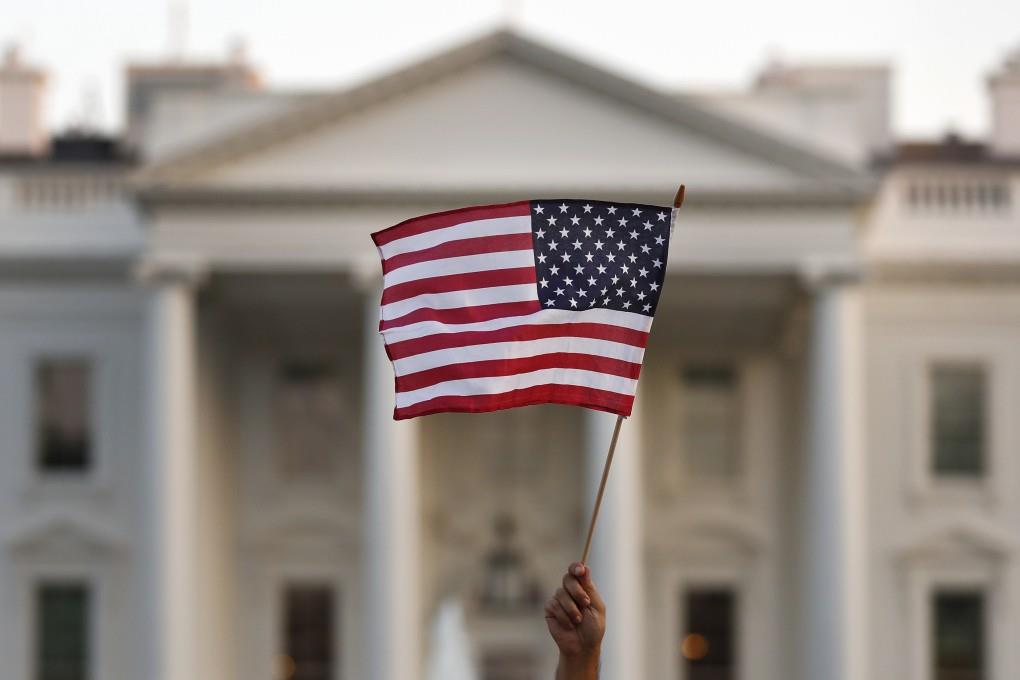
The Democracy Of America Is At Risk
The 250-year-old American democracy has faced four years of unprecedented challenges, beginning with the violent riots that sought to overturn the results of the 2020 presidential election, the criminal conviction of former President Donald Trump, and his persistent claims that the electoral process was“rigged.” Additionally, inflation, culture, identity wars, and geopolitical crises have contributed to frustration among many voters regarding American politics and decision-makers, who they believe have failed to deliver essential services to the public.

Dr. Hatem Sadek
The United States is widely recognized as a nation of immigrants from Europe, South America, Africa, and Asia, making it culturally, ethnically, and religiously diverse. The concept of belonging in this context is less about land or history and more about the level of development, prosperity, and civil rights that have been earned and paid for by generations of these various ethnic, religious, and cultural groups. Consequently, no single group can claim exclusive ownership of the land or assert a superior right to belong, nor can they justify a higher status over others. However, historical realities have imposed different notions, leading to the perception that the white European race is more entitled to dominance and control. This has resulted in feelings of isolation and marginalization among other groups, who have faced blatant and inhumane discrimination that persists today in various forms, as evidenced by the actions of politicians, extremist racial groups, and security institutions. This is exemplified by the tragic case of George Floyd, an African American, among many others who have experienced similar injustices.
It is true that these immigrants did not arrive in America under the same circumstances; some came in search of a better life to fulfil their potential, while others were forcibly taken and enslaved. However, after all these years, they have still not managed to integrate into a unified community based on the principle of diversity, nor have they formed a homeland for all its citizens, where they can experience equality in the right to life, access to education, food, healthcare, and personal security. This includes a shared sense of belonging to humanity, where no individual is favoured over another except by the contributions they make to their country.
There is no doubt that the United States is currently experiencing a fractured identity crisis, which necessitates prompt attention, especially in light of the emergence of far-right political parties or groups. This situation has been exacerbated by Donald Trump's defeat in the recent presidential elections and the subsequent events and positions that followed.
A recent opinion poll published by The New York Times in collaboration with Siena College has confirmed that three-quarters of voters believe that American democracy is facing a genuine existential threat. Nearly half of the respondents feel it does not accurately represent the populace. The survey presents a rather bleak outlook just days before ballots are cast nationwide, with 45% of participants asserting that American democracy fails to represent all Americans accurately.
Three-quarters of voters express the belief that democracy is facing an existential threat, although their perceptions of the risk factors vary significantly based on their political inclinations. A majority of voters perceive the government as being tainted by corruption, with 62% stating that it primarily operates in the interests of itself and the political and financial elites, rather than for the common good.
These sentiments have led a significant portion of voters, precisely 58%, to believe that the financial and political systems in the country require comprehensive reforms or a complete overhaul. This raises questions about why the government appears incapable of addressing economic issues and is slow to tackle the pressing concerns faced by its citizens.
Despite these sentiments, voters also expressed confidence in the presidential election system for the upcoming elections. Approximately 80% of voters-comprising Republicans, Democrats, and independents-believe that the results of the 2024 presidential election will be accurate. This marks an improvement from two years ago when around 70% of voters expressed confidence in the outcome of the midterm elections.
Americans perceive their mainstream media and social media as detrimental to democracy. In the age of the internet, journalism has mastered the art of politicizing anger, contributing to the prevalence of paranoia and distrust. Furthermore, the American voter believes that all media outlets are part of an integrated system of toxic and self-reinforcing information. However, only 7% of voters indicated that democracy is the most critical issue in their presidential elections. Nonetheless, voters have expressed discomfort with the authoritarian tendencies of political leaders. Only 21% of adult voters supported the notion that the president should be able to act outside the law as deemed appropriate.
Voters are experiencing significant anxiety regarding how Trump will respond to the election results in the event of a loss. Six out of ten voters are uncertain whether Trump will accept the outcomes, and nearly half of the electorate- including 12% of Republicans-express concerns that Trump and his supporters may attempt to overturn the election through illegal means. In contrast, most voters across various political affiliations express confidence that Harris will accept the election results, with few fearing that she would seek to contest the results if she were to lose.
The recent years have witnessed a troubling pattern of racial discrimination in the United States, particularly against citizens of African and Latin American descent, as well as Muslims, alongside a rising tide of Islamophobia. This situation indicates that the nation is grappling with a deep-seated identity crisis. It may now be imperative to formulate new policies and constitutional amendments that affirm the capacity for coexistence among diverse identities, promote integration, and eliminate any notions of racial or identity superiority.
Dr. Hatem Sadek – Professor at Helwan University

Legal Disclaimer:
MENAFN provides the
information “as is” without warranty of any kind. We do not accept
any responsibility or liability for the accuracy, content, images,
videos, licenses, completeness, legality, or reliability of the information
contained in this article. If you have any complaints or copyright
issues related to this article, kindly contact the provider above.


















Comments
No comment